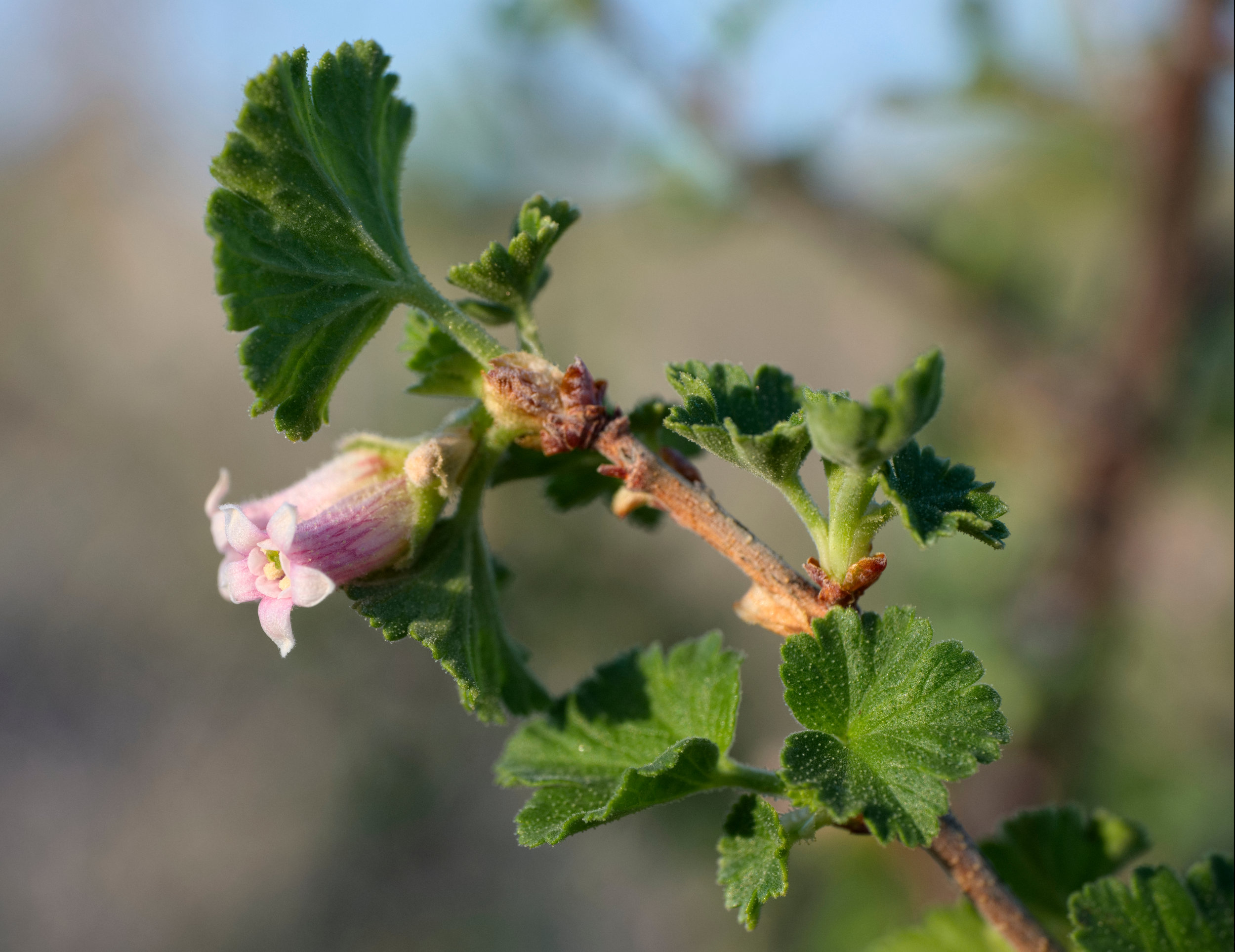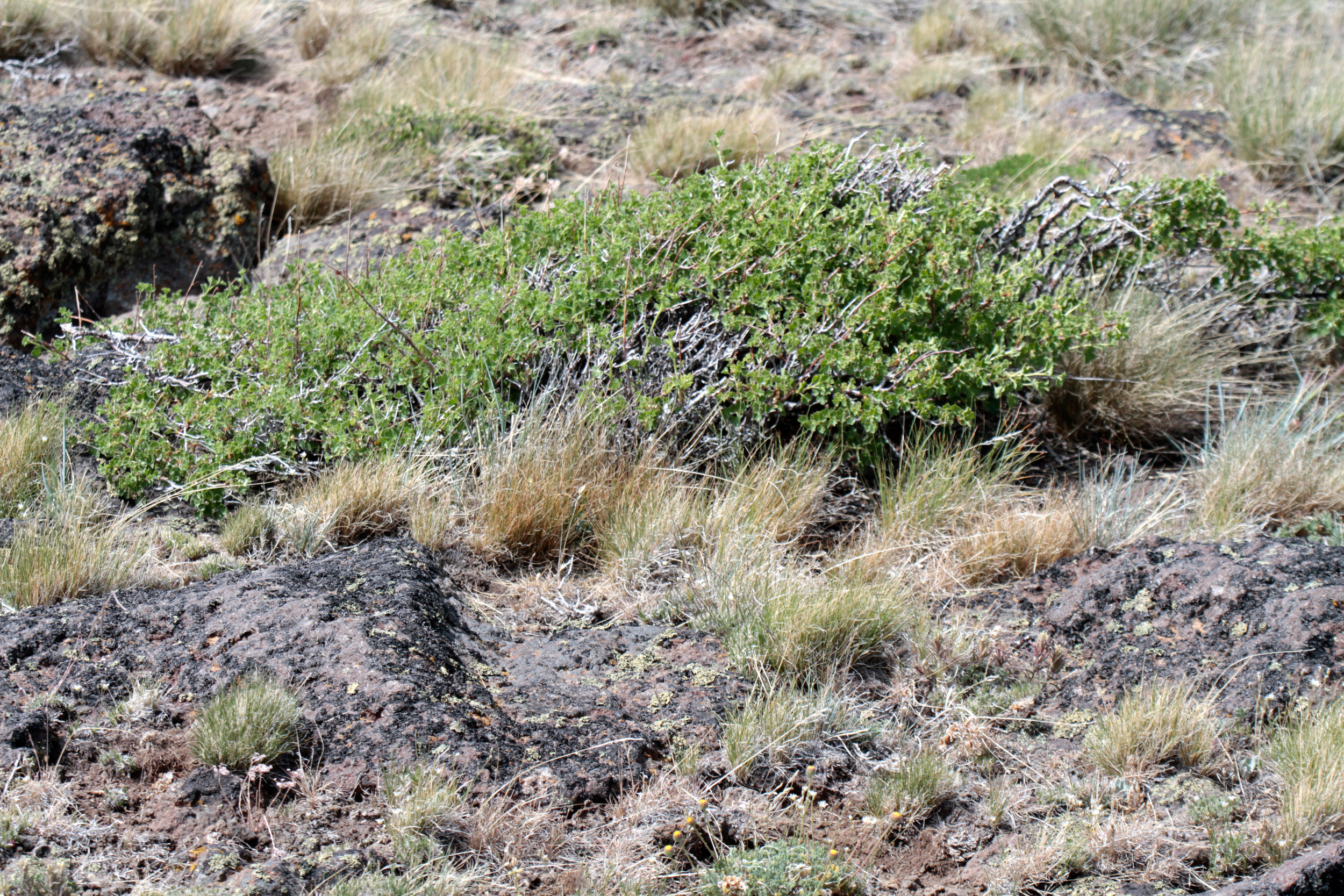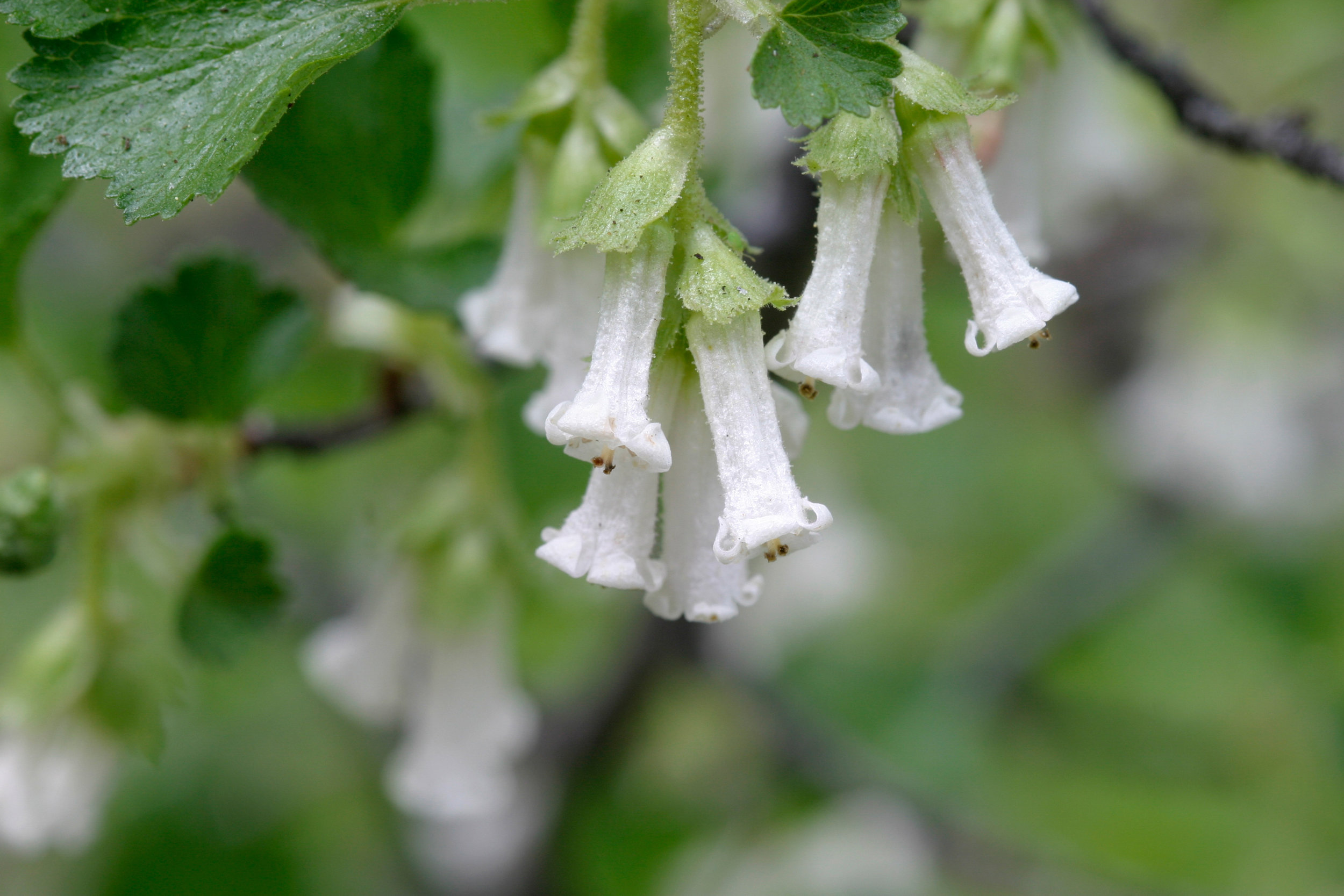Ribes cereum (Wax currant)
Deciduous non-rhizomatous shrub up to 6 ft. tall with globe-like berries and short tubular white to pink flowers, blooming April to September. Adapted to a variety of soils from sands to clays on dry, open slopes, ridges and rock outcrops in open, coniferous forests, woodland edges, shrub-steppe, sagebrush desert and mountain shrub to subalpine habitats; up to 12,500 ft. elevation. Frequently occupies drier sites than Golden currant (R. aureum). May be found within pine, Rocky Mountain maple (Acer glabrum), Skunkbush sumac (Rhus aromatica), snowberry (Symphoricarpos spp.), Wood’s rose (Rosa woodsii) and Saskatoon serviceberry (Amelanchier alnifolia) communities. Provides cover as well as food for wild ungulates when little else is available. Berries are excellent food for birds and small mammals. Nectar is important to hummingbirds. Caterpillar host of the Rocky Mountain agapema moth.
DISTRIBUTION / ADAPTATION
INFORMATION & ATTRIBUTES
Family: Grossulariaceae
Duration: Perennial
Growth Habit: Shrub
Native Status: Native
Growth Form: Multiple stem
Mature Height: 2-6 ft.
Bloom Color: White
Fruit/Seed Color: Red-Orange
Bloom Period: Late spring
Annual Precipitation: 8-81 in.
Drought Tolerance:
Shade Tolerance: Intolerant
Elevation: 4,950-13,200 ft.
Fire Resistance:
Fire Tolerance:
Nitrogen Fixation:
SOIL ADAPTATION
Coarse Texture: Yes
Medium Texture: Yes
Fine Texture: Yes
Salinity Tolerance: None
CaCO3 Tolerance: None
pH Range: 5.1-7.2
SEEDING NOTES
Seeds per Pound: 350,000
Seeding Rate: PLS lbs/acre
Season: Fall
Days to Germination:
VARIETIES & LOCAL ACCESSIONS
None




